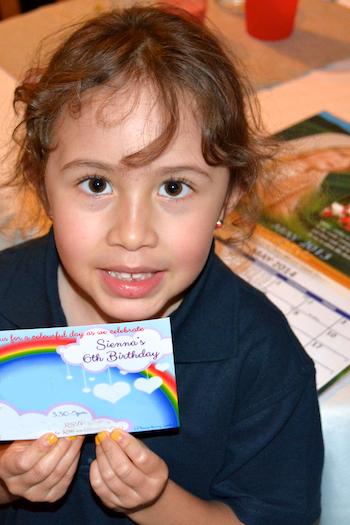Calendars
Duration/age

There is so much to remember in a day, a week, a month and a year. How do you keep track of what needs to happen and when? One way is to record an event on a calendar.
Talk to your child about all of the different events that happen over the year. Explain that some things we can remember because they are regular events and happen every day or week. Other things are harder to remember because they are irregular, changing or one-off events. When you record an event, time and place on the calendar it helps you to remember and plan what you need to do.
Explore with your child all the places that you can find a calendar and how different they can look. They can be paper or electronic. You can find them on the wall, in a book called a diary, in your phone, on the TV or computer.
As you brainstorm together your family's special events, record them on the calendar. Talk about the month of the special event and the date.
Is the event going to happen on the weekend or a weekday?
If a special invitation arrives for your child they can help you to record the event on the calendar.
It’s Blossom’s birthday on the 2nd of May. She wants you to come to her party. Let’s put it on the calendar. Can you find a month that starts with an M?
Materials you will need
- Calendar
Alternative tools
- Computer
- Mobile phone
Why does this matter?
Talking about when something will happen and recording it on a calendar helps your child to develop the concept of time and an understanding that events happen in an order. As you record events on a calendar you are exploring concepts related to days, weeks, month and a year.
The language we use to talk about the event and the way we record the event will be determined by how regular it is, the amount of information we need to remember and who else needs to know.
When you encourage your child to use or record information on the calendar they are experimenting with planning and organising events. As they explore where to record information they are learning that numbers are ordered and the order does not change.
What does this lead to?
Recording events on a calendar helps children to understand that time can be represented in many different ways.
Time can be represented as a numeral on a clock, as an event that will happen or as something that happens at different times of the day. Time can be represented as something that can happen very soon and is over quickly or as something that we have to wait a long time to happen and then takes a long time to complete.
When you talk about time as an event or a routine, children are developing an understanding that we use different language to describe time and that this language will be different to the language we use to describe time on a clock.
Recording an event using a calendar helps children to understand that months are made up of days.
Language to use
- Day, month, week, year, time, date
- Calendar
Questions to use
- What day is that?
- Will it happen every week?
- Is that after Easter?
- Will it happen in the morning or the afternoon?
- What else is happening that month?
Useful tips
- Place a star or a circle around the special event so your child can see when it will happen.
- If your child is younger, only record events that are a week away.
- Also, if your child is younger, talk about events in relation to other big events, such as ‘your birthday is just before Christmas'.
- Remember to talk to your child in your home language.
More ideas
Mark off the days on the calendar till the event happens.
Variation by age
Three to five year olds
- Make your own calendars.
- Mark all of the family’s birthdays on the calendar. Include the dog and the cat.
- Mark the weekend days in a different colour to the weekdays.
Questions to ask
- Are there more weekdays than weekend days?
- Who has a birthday that is close to Christmas?
- How many days until your birthday?
- What day and number of the month is the party on?
Language to use
- Closest, furthest
- Day, number, date, month
- Weekday, weekend, school day
- How many, counting, number


